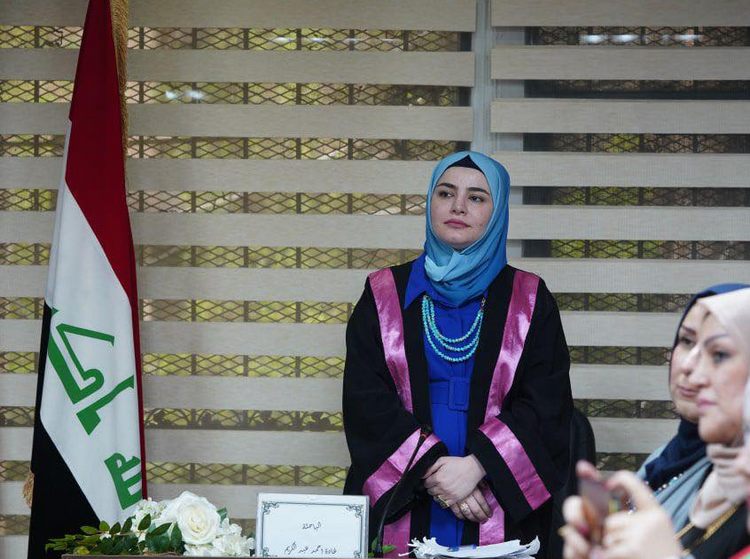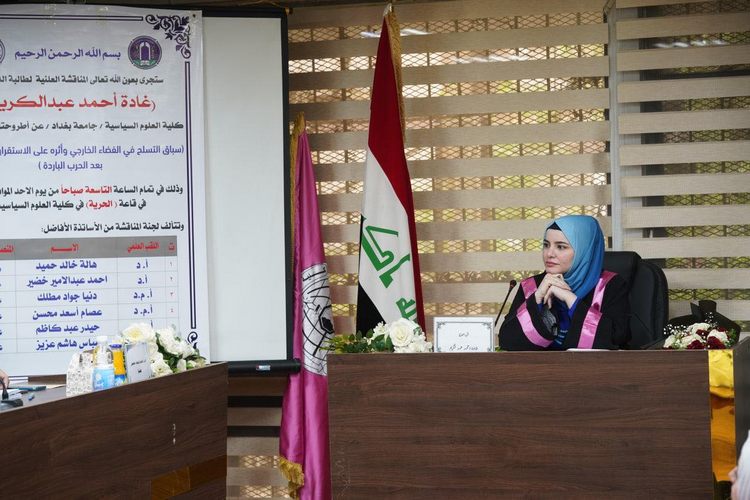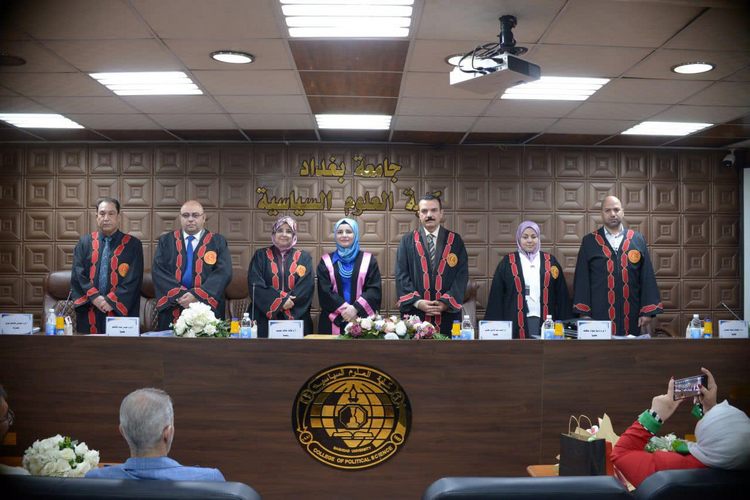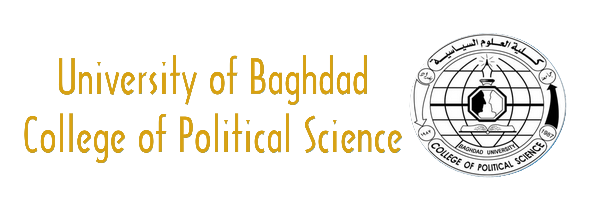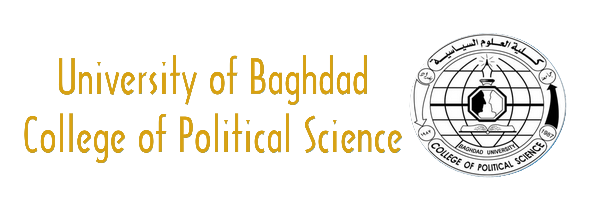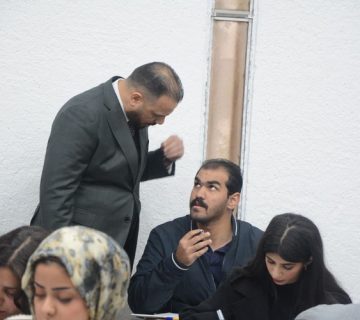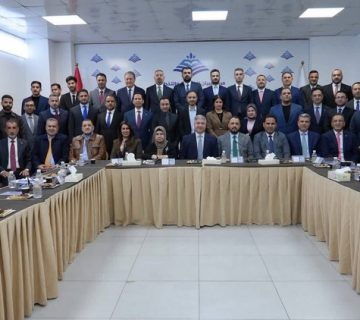The College of Political Science at the University of Baghdad discussed a dissertation entitled “The armament race in outer space and its impact on strategic stability after the Cold War,” by the student “Ghada Ahmed Abdel Karim” under the supervision of Assistant Professor Dr. “Abbas Hashim Aziz.”
The dissertation explained that after World War II, the international arena witnessed an ideological conflict between the United States and the Soviet Union, and one of the tools of this conflict was the armament race, and this race helped in reaching outer space, and thus it was one of the reasons for the disintegration of the Soviet Union and the end of the Cold War. Despite the end of the Cold War, the (space) armament race did not end. Rather, space became an arena for strategic conflict among countries, especially the presence in space was not limited to the two poles of the Cold War. Rather, state and non-state actors multiplied, in addition to the choice of anti-satellite weapons, and was not limited to the United States and Russia, but other countries have done so, such as China in 2007 and India in 2019.
The dissertation reached a number of conclusions, the most notable of which are:
Countries choose an armament race (building weapons) when they have no other (better) political option. The results of this race are tension in political relations, and an increased possibility of war. Although this strategic option entails negative results, there are positive results, as in some cases, armament and military competition is the best option for the state, if necessary, in order to protect its security. Outer space emerged at the beginning as another field for military competition between the two poles of the Cold War, and both poles saw their space programs as a means to prove the superiority of their social system.
At the end of the viva, the researcher was awarded a doctoral degree with a grade of “very good.” Wishing for her and other dear postgraduates good luck and success.
